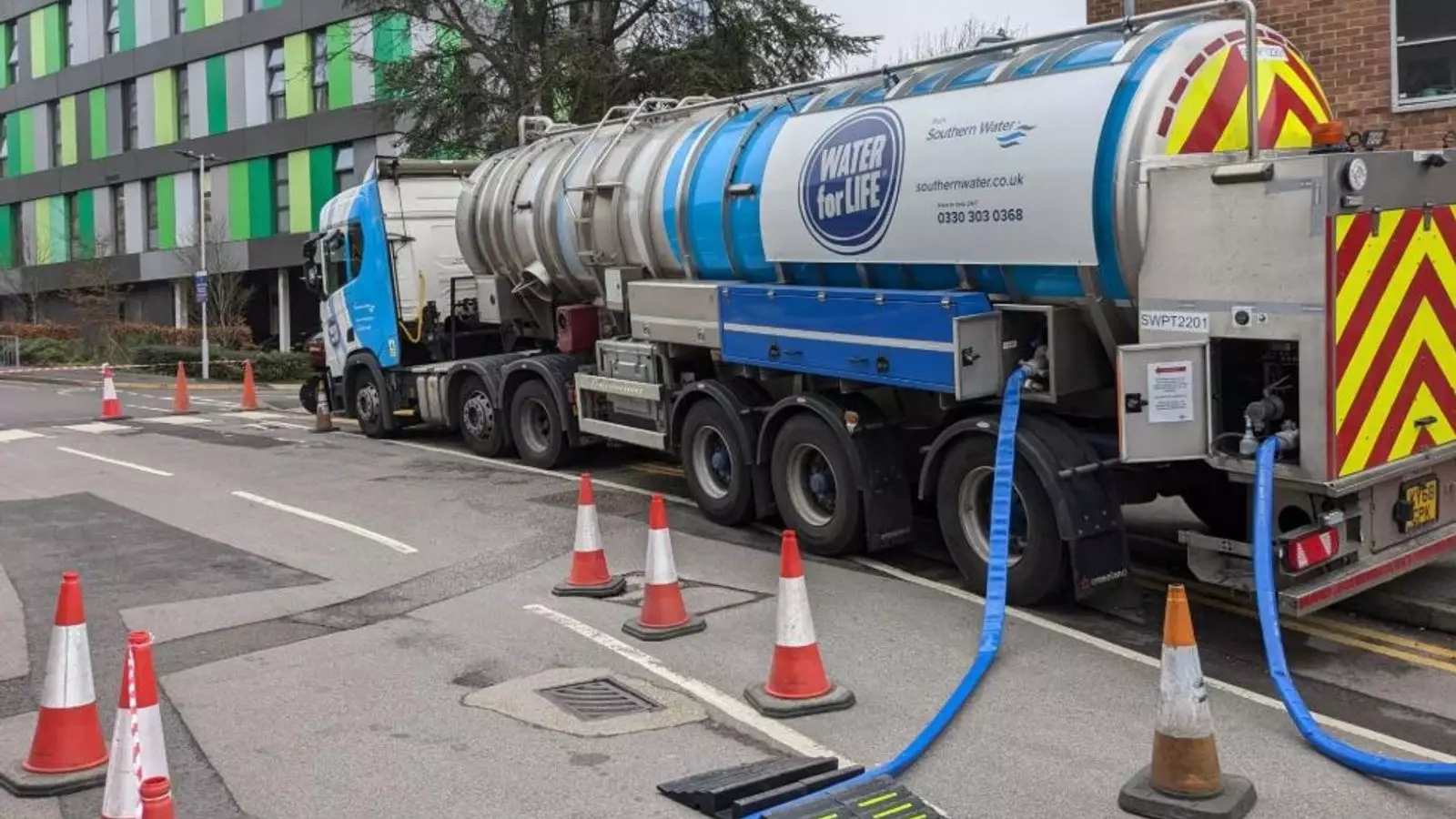Recent reports have revealed a significant water supply disruption affecting nearly 60,000 homes in Hampshire, a situation attributed to a “technical issue” at the Testwood water supply works operated by Southern Water. The areas impacted encompass major towns including Southampton, Romsey, Eastleigh, and Totton, alongside several locations in the New Forest. This predicament has triggered severe inconveniences for local residents, who now find their daily routines disrupted due to the lack of running water. Southern Water is currently facing critical scrutiny as it grapples with restoring essential services to its customers.
Efforts to Mitigate the Impact
In response to the crisis, Southern Water has set up water distribution points at various locations including the Places Leisure Centre in Eastleigh, as well as Sainsbury’s and Asda superstores. Long lines of affected residents at these bottling stations illustrate the urgency of the situation. Moreover, the company is prioritizing consumers reliant on medical support and has dispatched specialist water tankers to both Southampton General Hospital and Princess Anne Hospital to ensure their needs are met during this outage. While Southern Water has expressed its commitment to resolving the issue, it warns that the full restoration of service may not occur until the weekend.
Interestingly, this outage has surfaced during a critical period for Southern Water and its customers, as consumers across England and Wales are bracing for steep increases in their water bills. Southern Water has proposed an astonishing 84% hike in its charges, while Thames Water is not far behind with a proposed 53% increase. These requests are set against a backdrop of new draft decisions from the water regulator Ofwat, which indicate bills will likely balloon overall by 20% over the next several years, translating to an average annual increment of £20 per household. By 2030, the average household water bill could rise from £448 to approximately £542.
This latest water crisis illustrates the challenges facing water companies in England and Wales, particularly in light of substantial investments aimed at improving both service delivery and environmental sustainability. Ofwat has endorsed an investment scheme valued at £88 billion over the next five years, which ostensibly necessitates these increased charges. However, it raises pressing questions about management efficiency, contingency planning, and the reliability of essential service providers.
Looking Ahead
As the situation continues to develop, residents are left in a state of uncertainty. The potential for a prolonged water shortage combined with the looming bill increases amplifies the urgency for Southern Water to resolve these technological challenges. The onus now lies with the company to not only remedy the water shortage but also to provide its customers with transparent communication and strategic plans moving forward. How Southern Water navigates this juncture will be critical not only for its immediate reputation but for the long-term relationship it maintains with an increasingly beleaguered customer base.

